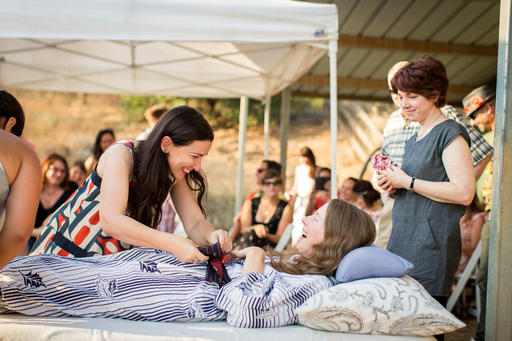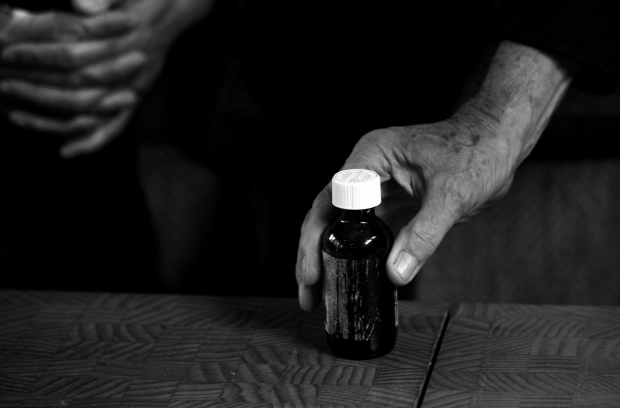Physician-Assisted Suicide: A New Pascal’s Wager
Note: Amid all the worries of these days, it’s good to remember that there are also signs and figures of hope. The two young priests writing today – like many others of their generation – are not at all confused or ambiguous about what the Church teaches. And they’re not reticent about expressing it, even in difficult cases such as end-of-life decisions. We’ve made clear and firm expression a touchstone for this site. And from what I hear from many of you, that’s one of the main reasons why you come here everyday. There are risks in being truthful, even in the Church. But we are determined to tell the truth – charitably, but fully and candidly – wherever we find it. We believe that’s a mission that deserves report from like-minded Catholics. If you’re one of them, please, make your donation today. The future existence of our Catholic Thing depends on you. – Robert Royal
By Fr. Cameron Faller & Fr. Joseph Previtali

July 24, 2016 Amanda Friedland, left, surrounded by friends and family adjusts her friend Betsy Davis’s sash as she lays on a bed during her “Right To Die Party” in Ojai, Calif. (Niels Alpert via AP)
July of 2016, Betsy Davis sent an e-mail to her closest friends and relatives. It was an invitation to a two-day party at a beautiful house in Ojai, California. But this was not going to be your usual party, she explained: at the conclusion of the celebration, she was going to end her own life with a lethal combination of drugs provided by her physician.
“Dear rebirth participants you’re all very brave for sending me off on my journey,” Betsy wrote, “There are no rules. Wear what you want, speak your mind, dance, hop, chant, sing, pray, but do not cry in front of me. Oh, OK one rule.”
Betsy Davis died, by her own hand, on July 24, 2016.
One of the friends present at the party was her friend, Niels. “The idea to go and spend a beautiful weekend that culminates in their suicide – that is not a normal thing, not a normal, everyday occurrence. In the background of the lovely fun, smiles, and laughter that we had that weekend was the knowledge of what was coming. . . . What Betsy did gave her the most beautiful death that any person could ever wish for. By taking charge, she turned her departure into a work of art.”
Most of Betsy’s friends and relatives, including Niels, left the party before Betsy actually took the lethal dose.
Her sister, Kelly, who was one of the few present at her death, said she loved the idea of the gathering, but she admitted, “Obviously it was hard for me. It’s still hard for me. . . . the worst was needing to leave the room every now and then, because I would get choked up. But people got it. They understood how much she was suffering and that she was fine with her decision. They respected that. They knew she wanted it to be a joyous occasion.”
Niels called her suicide “beautiful” even though it loomed on the horizon as the dark cloud of “what was coming” at the end of the party. Kelly was trying to make the party “joyous” but she couldn’t hold back her tears. Betsy did not want to see them cry.
Understandably, there was deep sadness about Betsy’s illness and the separation of loved ones. That is a normal and good sadness that accompanies all illness and death. But the anxiety and conflict of heart written between the lines of Niels’ and Kelly’s testimony – and in Betsy’s desire to avoid the tears of her loved ones – touches a deeper darkness surrounding the choice to deal with illness by committing suicide.
At the heart of the matter is an inescapable question: How do we know that Betsy’s suicide ended her suffering? Note in her invitation quoted above that she called the event a “rebirth.” To what, then?
To be sure, we can observe that the current form of suffering from physical illness has ended for her. But do we know, without revelation from God, what happens after the death of our bodies?

The truth is quite different: to hold that suicide ends all suffering is to depart from reason and science, and to take a leap of blind faith in one’s own power of conjecture about the state of the rational self after the death of the body. Indeed, no higher authority has revealed to us that suicide ends all suffering. It is, rather, a simple supposition on the part of people who have no access to the truth or falsehood of the claim. Critical minds normally would judge such blind and solipsistic faith foolhardy.Thus, physician-assisted suicide brings us to the precipice of a new version of Pascal’s wager: Are we going to take the chance, with no supporting evidence, that suicide ends all our suffering? Is it worth the risk that maybe there is more than our present suffering?
This wager is the end of the road for human reason facing the mystery of death.
Betsy had faith (in her own idea?) that her suicide would result in her “rebirth.” To have the Catholic faith means to believe in the authority of Jesus Christ; Almighty God made man for salvation.
Jesus Christ teaches us that there is no way to an eternal life free of suffering, except through participation in His Cross. He brings purpose and reason into our experience of suffering: it is precisely in freely accepting our suffering and God’s providential plan for our deaths that we prepare ourselves for perfect happiness with God. This is how our suffering loved ones, with our love and support, assistance and presence, will freely accept God’s sovereignty over life – suffering their death, when it comes, in union with Christ.
Ancient Christian art depicted the Cross of Jesus Christ not so much in its historical details, but rather as a fruitful and life-giving Tree. This is the power of the eyes of faith. With Jesus Christ, we can learn to see our suffering and death as transformed and made beautiful by Divine Love. His Cross was fruitful for the salvation of the whole world. He invites us to enter in to His fruitfulness and beauty in our own suffering and death. Our task, then, is not to encourage our suffering loved ones to commit suicide – a growing threat to human dignity – but rather to accompany them as they carry the Cross with Our Lord, filled with hope that He is making them fruitful and beautiful.
We pray for Betsy and we entrust her to Jesus Christ, her Merciful Lord. We pray for Niels and Kelly, that they will experience deep healing and peace in the Heart of Jesus Christ. We know that He is the only answer to the problem of suffering, especially in terminal illness. We know that only He sheds the Light that scatters the darkness of doubt about the fate of the human being after the death of the body.
Fr. Cameron Faller & Fr. Joseph Previtali
Fr. Cameron Faller currently serves as the associate pastor of Church of the Epiphany in San Francisco as well as an assistant vocation director. Fr. Joseph Previtali is a priest of the Archdiocese of San Francisco; he is pursuing the Doctorate of Sacred Theology at the Pontifical University of St. Thomas Aquinas in Rome.
EDITORS NOTE: © 2017 The Catholic Thing. All rights reserved. For reprint rights, write to: info@frinstitute.orgThe Catholic Thing is a forum for intelligent Catholic commentary. Opinions expressed by writers are solely their own.




Leave a Reply
Want to join the discussion?Feel free to contribute!